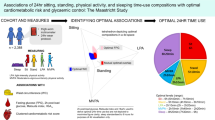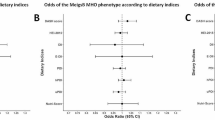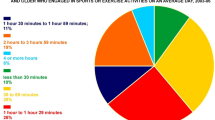Abstract
Hypertension is a major risk factor for cardiovascular diseases, and behavior modification has been shown to improve blood pressure (BP). We investigated whether daily self-monitoring of systemic BP and other factors related to cardiovascular events decreased BP in hypertensive participants. In this prospective, randomized, open, blinded-endpoint trial, we assigned 161 participants with hypertension to monitor their BP daily (BP-measurement group) or, in addition to BP, monitor their body fat, sleeping time, and daily step count (multiple-measurement group) or no self-monitoring (control group) for 2 months. The primary endpoint was the absolute change in systolic BP from baseline to 2 months after assignment. There were no differences in the baseline age and gender ratios among the three groups. After 2 months, systolic BP in the morning was unchanged in the control group, at a median of 149 mmHg [interquartile range (IQR) 136–164] from 150 mmHg (IQR 138–164), and was significantly decreased to 139 mmHg (IQR 125–148) from 142 mmHg (IQR 131–157) in the BP-measurement group. BP did not further decrease in the multiple-measurement group, 134 mmHg (IQR 121–146) from 141 mmHg (IQR 131–157). Daily self-monitoring of BP decreased the BP of participants with hypertension, but additional daily self-monitoring of body fat, sleeping time, and daily step count did not further decrease BP. This behavior modification merits use as a nonpharmacological hypertension treatment.


Similar content being viewed by others
References
Braunwald E, Bristow MR (2000) Congestive heart failure: fifty years of progress. Circulation 102(20 Suppl 4):Iv14-23
Ambrosy AP, Fonarow GC, Butler J, Chioncel O, Greene SJ, Vaduganathan M, Nodari S, Lam CSP, Sato N, Shah AN, Gheorghiade M (2014) The global health and economic burden of hospitalizations for heart failure: lessons learned from hospitalized heart failure registries. J Am Coll Cardiol 63(12):1123–1133
Staessen JA, Wang JG, Thijs L (2001) Cardiovascular protection and blood pressure reduction: a meta-analysis. Lancet 358(9290):1305–1315
Swedberg K, Komajda M, Bohm M, Borer JS, Ford I, Dubost-Brama A, Lerebours G, Tavazzi L (2010) Ivabradine and outcomes in chronic heart failure (SHIFT): a randomised placebo-controlled study. Lancet 376(9744):875–885
Kannel WB, LeBauer EJ, Dawber TR, McNamara PM (1967) Relation of body weight to development of coronary heart disease. The Framingham study. Circulation 35(4):734–744
Laugsand LE, Strand LB, Platou C, Vatten LJ, Janszky I (2014) Insomnia and the risk of incident heart failure: a population study. Eur Heart J 35(21):1382–1393
Yates T, Haffner SM, Schulte PJ, Thomas L, Huffman KM, Bales CW, Califf RM, Holman RR, McMurray JJ, Bethel MA, Tuomilehto J, Davies MJ, Kraus WE (2014) Association between change in daily ambulatory activity and cardiovascular events in people with impaired glucose tolerance (NAVIGATOR trial): a cohort analysis. Lancet 383(9922):1059–1066
Wing RR, Tate DF, Gorin AA, Raynor HA, Fava JL (2006) A self-regulation program for maintenance of weight loss. N Engl J Med 355(15):1563–1571
Helander EE, Vuorinen AL, Wansink B, Korhonen IK (2014) Are breaks in daily self-weighing associated with weight gain? PLoS ONE 9(11):e113164
Mogi M, Hasebe N, Horiuchi M, Shimamoto K, Umemura S (2016) The results of a survey of physicians about the Japanese society of hypertension guidelines for the management of hypertension 2014 and its clinical use. Hypertens Res 39(9):660–663
Tucker KL, Sheppard JP, Stevens R, Bosworth HB, Bove A, Bray EP, Earle K, George J, Godwin M, Green BB, Hebert P, Hobbs FDR, Kantola I, Kerry SM, Leiva A, Magid DJ, Mant J, Margolis KL, McKinstry B, McLaughlin MA, Omboni S, Ogedegbe O, Parati G, Qamar N, Tabaei BP, Varis J, Verberk WJ, Wakefield BJ, McManus RJ (2017) Self-monitoring of blood pressure in hypertension: a systematic review and individual patient data meta-analysis. PLoS Med 14(9):e1002389
Uhlig K, Patel K, Ip S, Kitsios GD, Balk EM (2013) Self-measured blood pressure monitoring in the management of hypertension: a systematic review and meta-analysis. Ann Intern Med 159(3):185–194
Fahey T, Schroeder K, Ebrahim S (2005) Interventions used to improve control of blood pressure in patients with hypertension. Cochrane Database Syst Rev (1):Cd005182. https://doi.org/10.1002/14651858.CD005182
Cappuccio FP, Kerry SM, Forbes L, Donald A (2004) Blood pressure control by home monitoring: meta-analysis of randomised trials. BMJ 329(7458):145
Bray EP, Holder R, Mant J, McManus RJ (2010) Does self-monitoring reduce blood pressure? Meta-analysis with meta-regression of randomized controlled trials. Ann Med 42(5):371–386
McCrae CS, Curtis AF, Williams JM, Dautovich ND, McNamara JPH, Stripling A, Dzierzewski JM, Chan WS, Berry RB, McCoy KJM, Marsiske M (2018) Efficacy of brief behavioral treatment for insomnia in older adults: examination of sleep, mood, and cognitive outcomes. Sleep Med 51:153–166
Wyke S, Bunn C, Andersen E, Silva MN, van Nassau F, McSkimming P, Kolovos S, Gill JMR, Gray CM, Hunt K, Anderson AS, Bosmans J, Jelsma JGM, Kean S, Lemyre N, Loudon DW, Macaulay L, Maxwell DJ, McConnachie A, Mutrie N, Nijhuis-van der Sanden M, Pereira HV, Philpott M, Roberts GC, Rooksby J, Roynesdal OB, Sattar N, Sorensen M, Teixeira PJ, Treweek S, van Achterberg T, van de Glind I, van Mechelen W, van der Ploeg HP (2019) The effect of a programme to improve men’s sedentary time and physical activity: the European Fans in Training (EuroFIT) randomised controlled trial. PLoS Med 16(2):e1002736
The Blood Pressure Lowering Treatment Trialists’ Collaboration (2021) Pharmacological blood pressure lowering for primary and secondary prevention of cardiovascular disease across different levels of blood pressure: an individual participant-level data meta-analysis. Lancet 397(10285):1625–1636
Funding
This study is supported by Grants-in-aid from Panasonic Co.
Author information
Authors and Affiliations
Contributions
This author takes responsibility for all aspects of the reliability and freedom from bias of the data presented and their discussed interpretation.
Corresponding author
Ethics declarations
Conflict of interest
TM have nothing to disclose. SI reports receiving grant from Japan Society for the Promotion of Science, outside the submitted work. MK reports grants from Japanese government, grants from Japan Heart Foundation, grants from Japan Agency for Medical Research and Development, personal fees from Daiichi-Sankyo, personal fees from Pfizer, grants and personal fees from Ono, personal fees from Bayer, grants and personal fees from Novartis, grants and personal fees from Boehringer, grants and personal fees from Tanabe-Mitsubishi, personal fees from Japan Medical Data Center, grants and personal fees from Takeda, grants and personal fees from AstraZeneca, outside the submitted work.
Additional information
Publisher's Note
Springer Nature remains neutral with regard to jurisdictional claims in published maps and institutional affiliations.
Rights and permissions
About this article
Cite this article
Ito, S., Morimoto, T. & Kitakaze, M. Daily self-monitoring of blood pressure decreases systolic and diastolic blood pressure in hypertensive participants. Heart Vessels 37, 1265–1270 (2022). https://doi.org/10.1007/s00380-021-02013-8
Received:
Accepted:
Published:
Issue Date:
DOI: https://doi.org/10.1007/s00380-021-02013-8




